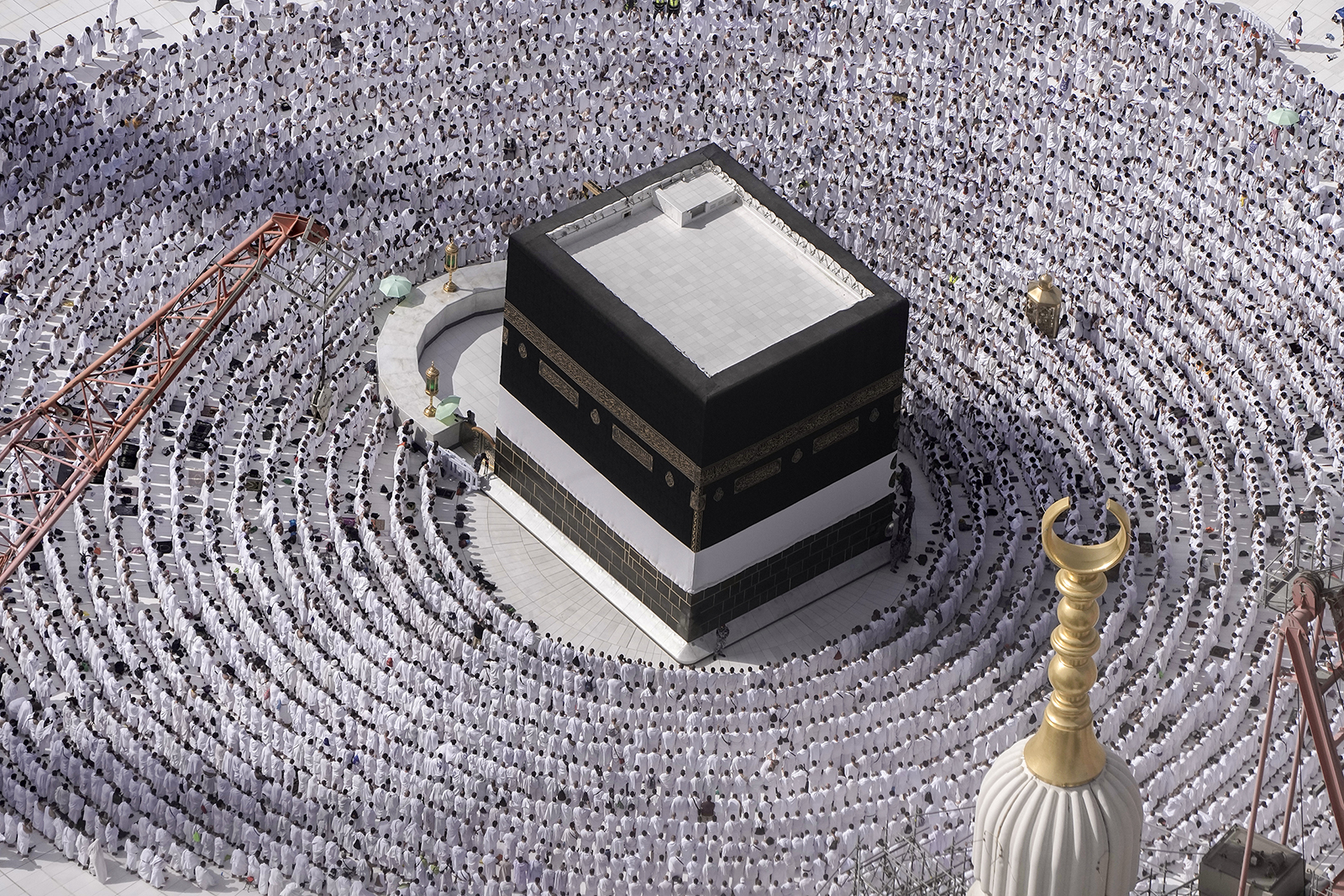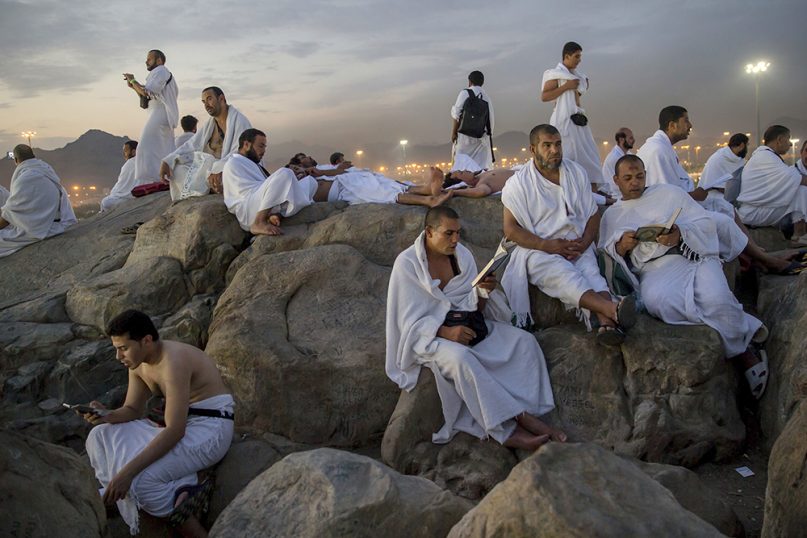
(RNS) — About two weeks to 10 days before the Eid al-Adha holiday, days before the annual Hajj pilgrimage is about to begin, the messages start pouring in:
“Assalamu alaikum wa rahmatullahi wa barakatu — I am leaving for Hajj tomorrow iA (insha’Allah), and I humbly seek your forgiveness for any wrong I may have done, knowingly or unknowingly, in words or actions … ”
“ASAK (asalamu alaikum) … As I prepare to embark on this blessed journey of Hajj … I wanted to take a moment to ask for your forgiveness if I have ever hurt or wronged you in any way.”
Messages like these — sent personally to friends and family or en masse through social media or messaging apps — are part of preparation for any Muslim leaving for Hajj.
But along with shoring up home and work responsibilities, studying up on Hajj prayers and rituals and packing comes a new and more uncertain kind of prep: Safeguarding oneself to facilitate a problem-free re-entry into the United States on the way home from the pilgrimage, a journey required of all able-bodied and financially able Muslims.
The Trump administration’s immigration crackdown has Hajj-bound Americans nervous and occasionally outright scared about everything from their visa status to their social media histories to WhatsApp group conversations. In the past few months, those with green cards or valid visas have been denied entry or detained by ICE, based on sometimes obscure or long-forgotten violations.

Muslim pilgrims pray on the Jabal Al Rahma holy mountain, or the mountain of forgiveness, at Arafat for the annual Hajj pilgrimage outside the holy city of Mecca, Saudi Arabia, on Aug. 20, 2018. (AP Photo/Dar Yasin)
The Council on American-Islamic Relations is cautioning travelers to prepare in advance. “Do you know how you would react? How you would respond? What would you say?” asks CAIR Community Advocacy Director Nicole Fauster-Bradford in a special CAIR video addressing travel and visa concerns for religious travelers.
Questioning travelers is a normal part of Customs and Border Patrol agents’ job, even for those travelers returning to the U.S, Fauster-Bradford said. But “questions (that) go beyond the task of establishing that you’re entering the United States as a citizen or valid visa holder” are not routine, she said. “Their interaction with travelers is supposed to really be about that issue.”
Fauster-Bradford said CAIR has received numerous reports of secondary screening involving “invasive and highly inappropriate” questions about what mosque or other institutions a person attends, about their mosque’s imam and even questions about emails or social media posts.
The Trump administration recently temporarily suspended the scheduling of new visa interviews for foreigners hoping to study in the U.S. “in preparation for an expansion of required social media screening and vetting,” according to a directive signed by Secretary of State Marco Rubio. The memo also directs consulates to not add any “additional student or exchange visitor visa appointment capacity.”
The move has worried many Hajj travelers. “Who knows what could happen while we are abroad?” asked one Hajj pilgrim, who wished to remain anonymous.
These were things my husband and I never worried about when we performed our pilgrimage 20 years ago, even though it was less than four years after 9/11.
I was a U.S.-born citizen, but my husband (now a citizen) was a green card holder, so we had cause to worry. I had also spent the years since 9/11 covering the fallout of the attacks and its effects on American Muslims for a Cairo-based media outlet. Even with all that, the scrutiny and concern about how we may be questioned when we came back home was nothing compared to today.
This year, crossing the border has dominated discussions in various Hajj groups and civil rights organizations and among friends, chiefly focused on social media and WhatsApp groups. Should they delete their social media entirely? Should burner phones be purchased and used specifically for the trip to ensure privacy of one’s personal phone?
“None of this is because we feel we’re doing something suspicious or wrong,” said the Hajj pilgrim I spoke to, who currently has a green card. “But there’s just too much uncertainty, especially if you are living here on a valid visa or green card. Even if you’re a citizen, it’s still worrisome.”
The woman, who left for Hajj this week with her husband, carefully removed herself from all mosque, prayer and religiously oriented WhatsApp groups before traveling. She chose not to delete herself on her social media apps, namely because she never shares anything beyond light-hearted personal posts.
Even with all the concern, she remains nervous, excited and hopeful about her upcoming pilgrimage. “This couldn’t have happened without God inviting us to perform our Hajj this year,” she told me. “Insha’Allah, it will all go well, and we will return safely with a clean spiritual slate.”
(Dilshad D. Ali is a freelance journalist. The views expressed in this commentary do not necessarily reflect those of RNS.)
